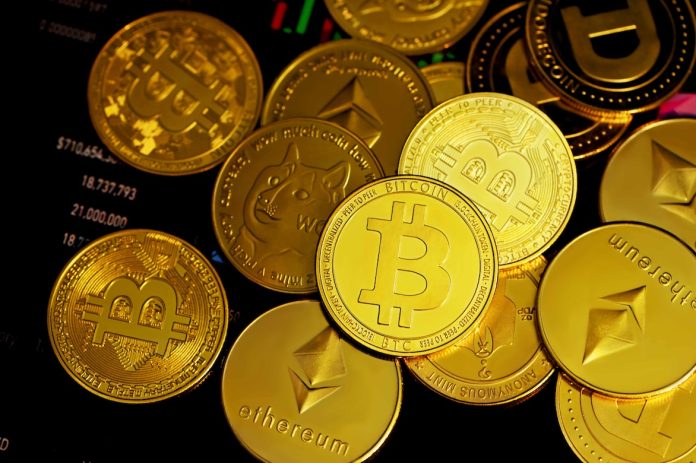
The emergence of blockchain technology has revolutionized various industries, and the online gambling sector is no exception. In particular, real money crypto casinos have leveraged blockchain to enhance transparency, fairness, and trust among players. Unlike traditional online casinos, where concerns about rigged games or unfair practices often arise, blockchain-powered platforms offer a verifiable and secure system that ensures fair play.
This blog explores the critical role of blockchain in guaranteeing fairness at real money crypto casinos and how it benefits both players and operators.
1. Transparency Through Public Ledgers
At the heart of blockchain technology is its transparent and immutable public ledger. In the context of the best crypto casinos in Canada, this ledger records every transaction, bet, and outcome in a decentralized manner.
How It Ensures Fair Play:
- Players can verify game outcomes independently by reviewing transaction records on the blockchain.
- All data is stored immutably, meaning it cannot be altered retroactively.
- This transparency eliminates doubts about manipulated outcomes or fraudulent practices.
Example Use Case:
A player placing a bet on a slot game can access the transaction ID on the blockchain to confirm that the game’s outcome was generated fairly using cryptographic algorithms.
2. Provably Fair Gaming Systems
One of the most significant advancements brought by blockchain to online gambling is the concept of provably fair gaming. This system uses cryptographic hashing to ensure that game results are both random and verifiable.
How It Works:
- The casino generates a cryptographic hash (a string of characters) before the game starts, representing the outcome.
- The player can input their seed (a random value) to influence the result, ensuring it’s not predetermined by the casino.
- After the game concludes, the casino reveals the hash, allowing players to verify that the result was fair and unchanged.
Benefits for Players:
- Confidence in the fairness of outcomes, whether they win or lose.
- A reduction in disputes, as players can independently validate results.
3. Eliminating Middlemen
Traditional online casinos often rely on third-party organizations to audit their games and ensure compliance with fairness standards. While this process adds a layer of accountability, it also introduces intermediaries, which can sometimes lead to biases or errors.
How Blockchain Solves This:
- Smart contracts, which are self-executing contracts with terms directly written into code, remove the need for intermediaries.
- These contracts automate game processes, payouts, and even dispute resolution, ensuring unbiased outcomes.
Example:
When a player wins a bet, a smart contract can automatically trigger the payout without human intervention, reducing the risk of delayed or denied winnings.
4. Enhanced Security and Anonymity
Blockchain technology enhances both security and privacy for players, addressing two common concerns in online gambling.
Security:
- Blockchain’s decentralized nature protects against hacking attempts, as there’s no single point of failure.
- Cryptographic techniques secure all transactions, making them tamper-proof.
Anonymity:
- Players can gamble using cryptocurrency wallets, eliminating the need to share personal or financial information.
- This anonymity appeals to users in regions where gambling is restricted or heavily regulated.
How This Promotes Fair Play:
By protecting player identities and funds, blockchain fosters trust in the platform, encouraging fair and ethical practices by casino operators.
5. Faster and Transparent Payouts
One of the biggest frustrations for online casino players is the delay in withdrawing winnings. Traditional casinos often impose lengthy processing times or require extensive documentation for payouts.
Blockchain’s Role:
- Transactions on the blockchain are processed almost instantly, ensuring faster payouts.
- All withdrawals are recorded on the blockchain, allowing players to track their funds in real-time.
Impact on Fair Play:
This transparency ensures that casinos cannot withhold winnings or impose hidden fees, reinforcing player confidence.
6. Building Player Trust
A recurring issue in online gambling is the lack of trust between players and operators. Many players are skeptical about the fairness of games, especially on platforms with limited oversight.
Blockchain Bridges the Trust Gap:
- Decentralized autonomous organizations (DAOs): Some crypto casinos operate as DAOs, where decisions are made collectively by token holders, ensuring fairness in operations.
- Open-source algorithms: Casinos that publish their algorithms allow players to inspect the code for fairness.
Case Study:
Crypto casinos like Stake and BC.Game have gained popularity by implementing provably fair systems and publishing their fairness mechanisms, attracting a loyal player base.
7. Tackling Regulatory Challenges
While blockchain offers numerous benefits, it also aligns with regulatory compliance in some jurisdictions. Licensed crypto casinos can use blockchain to demonstrate adherence to fairness standards, helping them operate legally.
How This Works:
- Regulators can access blockchain records to audit transactions and verify compliance.
- Players are reassured that the casino operates under legitimate and fair guidelines.
Future Implications:
As governments and regulatory bodies become more familiar with blockchain, its adoption in online gambling is expected to increase.
8. Challenges and Limitations
Despite its benefits, blockchain in crypto casinos is not without challenges.
- Scalability: High transaction volumes can lead to network congestion and slower processing times.
- Complexity: Understanding and verifying blockchain transactions can be intimidating for novice players.
- Legality: Regulatory hurdles in certain countries may limit the adoption of blockchain-based gambling.
Conclusion
Blockchain technology has redefined the landscape of real money crypto casinos by ensuring fairness, transparency, and security. The technology has addressed longstanding concerns about trust and manipulation in online gambling, from provably fair gaming systems to decentralized smart contracts.
While challenges remain, blockchain integration promises a future where players can enjoy a secure and fair gambling experience. As more players and operators recognize its potential, blockchain is set to become a cornerstone of the online casino industry.




